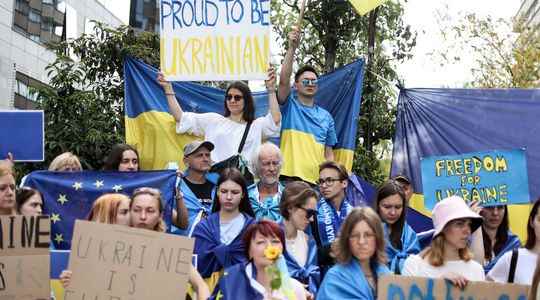“Historic” is the qualifier most often used in recent hours to describe the granting to Ukraine and Moldova, by the Twenty-Seven, of the status of candidate for the European Union. In fact, four months after the Russian invasion, this decision is a powerful signal, confirming to them that they indeed belong to the European family and to its community of values.
But make no mistake, these memberships are not for now. They could take “probably fifteen or twenty years”, ventured, at the end of May, the Minister Delegate for European Affairs, Clément Beaune. It could be much longer, even if kyiv would have perfectly met the regulatory, economic and judicial convergence criteria required by Brussels, and eradicated endemic corruption – the NGO Transparency International ranks Ukraine 122nd out of 180 in its 2021 report.
The problem is the existence of separatist entities among these new EU candidates. In Moldova, there is Transnistria, where there is a Russian military base, and whose flag still features a hammer and sickle. In Ukraine, there is Crimea, a region annexed in 2014 by Moscow, but also the secessionist republics of Luhansk and Donetsk, not to mention the territories conquered by Moscow since February 24, particularly in the South.
“The European Union, like NATO, cannot bring into its midst a country at war or which has not settled its border problems, it is prohibitive”, recalls the geographer Michel Foucher. This, however, never happened. Admittedly, three neighboring countries, Hungary, Slovakia and Romania, had to agree, in order to join the EU, on the status of certain populations. But it was more of a minority issue than a border issue.” The same goes for South Ossetia and Abkhazia in Georgia, which is also asking the EU to grant it candidate status.
Could the inevitable end of Vladimir Putin’s reign change the situation? “Russia should cease to be an empire and become a democracy; for the moment, this is fiction, believes Michel Foucher. Nothing will change as long as an autocratic regime is in place there… as it has always summer.” Ukrainians and Moldovans are therefore not close to realizing their European dream.
